By Clodagh Bastian
– I pulled into the parking lot on Raleigh’s west side on one of the coldest mornings this year. A small cluster of people stood waiting while several men set up a row of folding tables. As I approached, I was greeted by one of them: John Goode, co-founder of the Method Boys to Men Club. John and his fellow club members were in this parking lot to do what they do every Tuesday of the year, rain or shine: feed those in need in the Method community.
The Boys to Men act as caretakers, providers, and support to the Method neighborhood of Raleigh. In addition to the food drive, which feeds an average of fifty families each week, the club provides Thanksgiving food boxes that each feed a family of four for two weeks. They fill backpacks with school supplies each year, also out of their own pockets (the back to school program has grown from 75 backpacks in the first year of the program to 125 this year). The men tend Historic Method Cemetery, help run neighborhood events, such as Method Park’s Halloween event and the “Method Day” community day, do neighborhood clean-ups and voter registration, and they help neighbors with repairs, transportation, company, or whatever else is needed.
When asked what motivates them, the men are humbly in agreement that they themselves receive more through their work than they give. They refer to their community as a sustaining force. “It helps us more than it helps them”, says Albert Crenshaw of the families they assist, “it’s always satisfying to see other folks happy, there’s something about that that helps you”.
The Boys to Men were raised in Method, and their work continues a history of homecoming and community in existence since the neighborhood’s inception.
Method was one of the first areas in Raleigh for former slaves to establish themselves as free citizens. Just after the Civil War, two freedmen, Jesse Mason and Isaac O’Kelly, bought up 69 acres of a plantation on the western outskirts of town. They sold tracts of the land to newly liberated families, who started to build a community. The village was first known as Save-Rent or Slabtown due to its houses’ low cost and the timber slabs used to build them. It was later renamed Method by either the Norfolk and Southern Railroad or the US Post Office (accounts diverge) when a flag stop and post office were added.
**Image above left to right: top row Albert Crenshaw, Clement E. Harris, Edward Holloway, Roosevelt William, John D. Goode Sr. Bottom row George Thompson, Swade Sander **
Providing education for the next generation was an important part of building Method. In 1871, Berry O’Kelly, a prominent resident of the village, founded what became its first public school. The campus included an elementary school and the first accredited high school for African Americans in North Carolina, and students traveled from across Wake County to board there during the school year.
The Berry O’Kelly campus encompassed seven buildings until the late 1960s. Today, only the agriculture building stands as a remnant in what is now Method Park. The building has been designated a historic landmark, and efforts are underway to expand historic protection to the entire park grounds and some of the neighborhood.
The Method Boys to Men attended class together at Berry O’Kelly High from the early 1950s to late 1960s. They also spent time together outside of school and were close to each other and each other’s families. After graduation, most went their separate ways. Now, fifty-some years later, they have reunited to help the community that shaped them.
John Goode returned to his old neighborhood after thirty years of service in the US Air Force. Recognizing that the community had needs, he decided to see if his buddies wanted to pitch in. John and Reverend Enoch (“Rock”) Holloway, Pastor of Friendship Baptist Church, co-founded the Method Boys to Men Club in 2013. The club’s name denotes the voyage they’d made from their childhoods together to returning to the community and supporting it as men. Eighteen original Berry O’Kelly High classmates came to that first meeting, now sixty-eight members regularly join in to help.
As I watched proceedings at the parking lot, the line for food grew, and about forty-five people of various ages waited for distribution to begin. The Method neighborhood is no longer exclusively African American in 2017, and faces in line reflected a range of heritages. Most stood quietly holding the bags or boxes they had brought to carry their food home. A truck from Ship of Zion Ministry arrived with produce, breads and other perishables; and the Boys to Men jumped into action covering the tables with food. After a blessing, everyone was invited forward to help themselves, and folks moved slowly down the tables filling their receptacles. As I watched, I thought about how these families would now make it through their week with one less worry. It seemed fitting that this community founded to shelter liberated slaves should continue to provide refuge to those in need. Thanks to the efforts of the Method Boys to Men Club, it does that and more.
This week, the Method Boys to Men Club is being awarded the Raleigh Parks and Recreation’s Fred Fletcher Outstanding Volunteer Award for their work in the community and in Method Park.
The ceremony will take place on Thursday, May 11 at 7Pm at the Fletcher Theatre in the Duke Energy Center for the Performing Arts.
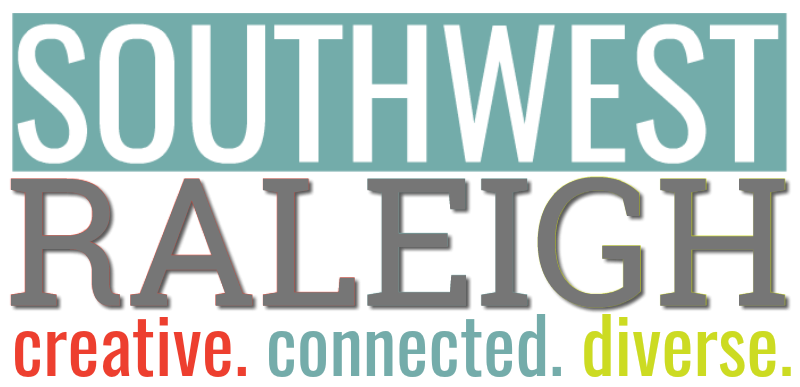
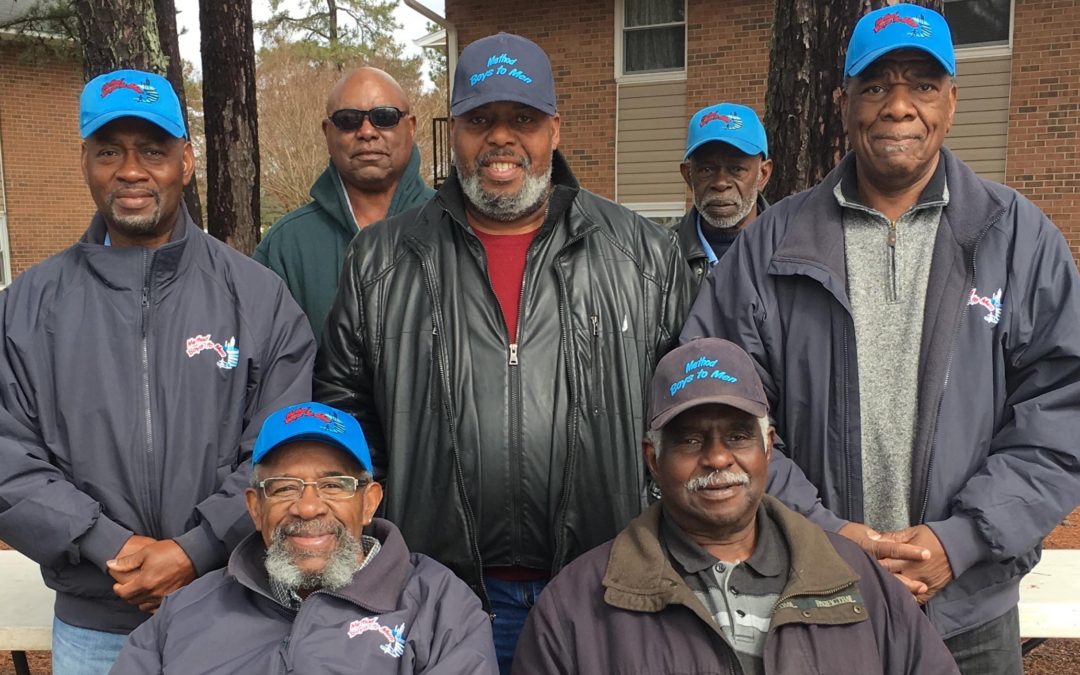
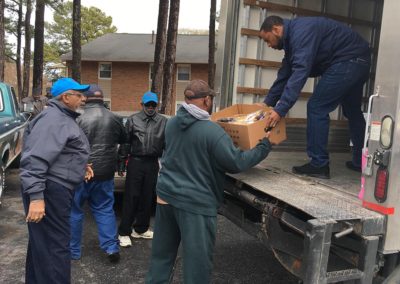
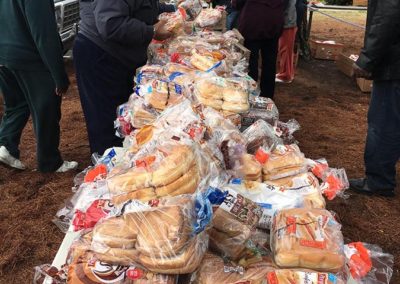
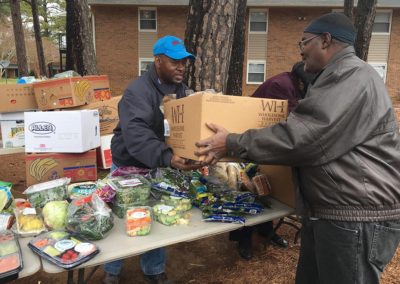
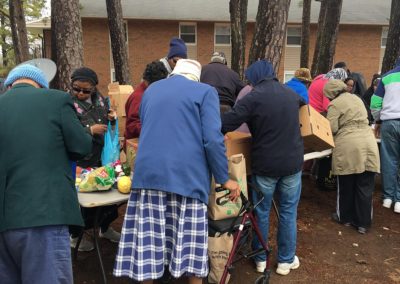
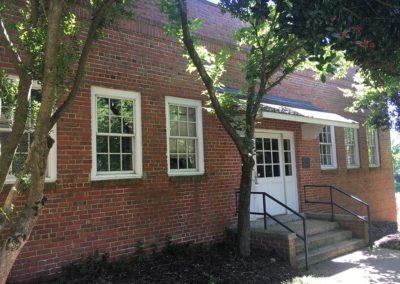
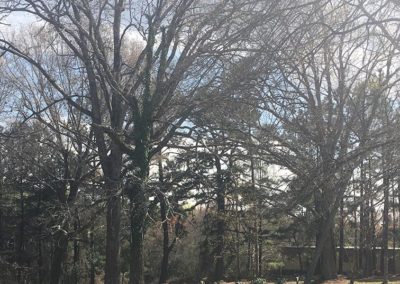
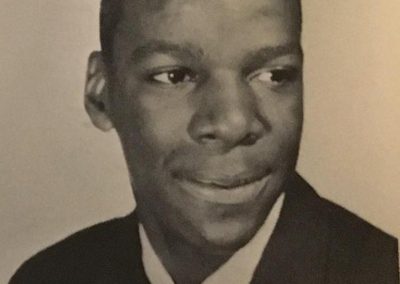
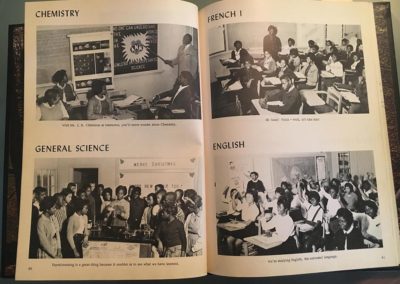
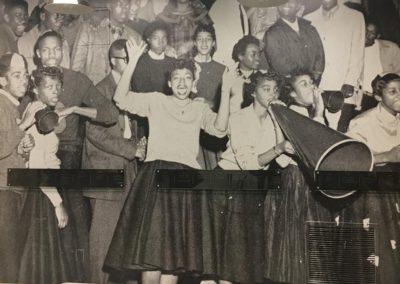
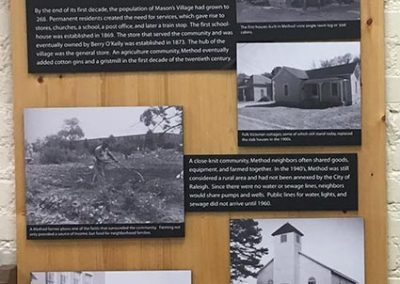
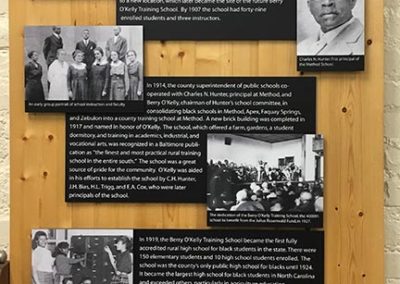
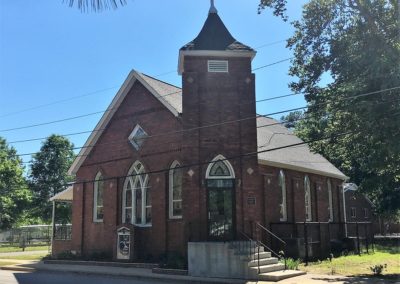
I moved from method in 1977 to Richmond Virginia. My mom is Annie Mae Williams 3003Richward place
I want to thank Clough Bastian, Raleigh’s event planner, for taking the time out, coming to Method on several occasions to do this outstanding story.
Thanks Clodagh
Thank you, John! It was a real pleasure and a privilege to meet you all and learn about the Method Boys to Men’s great service to the community!
Best wishes, Clodagh